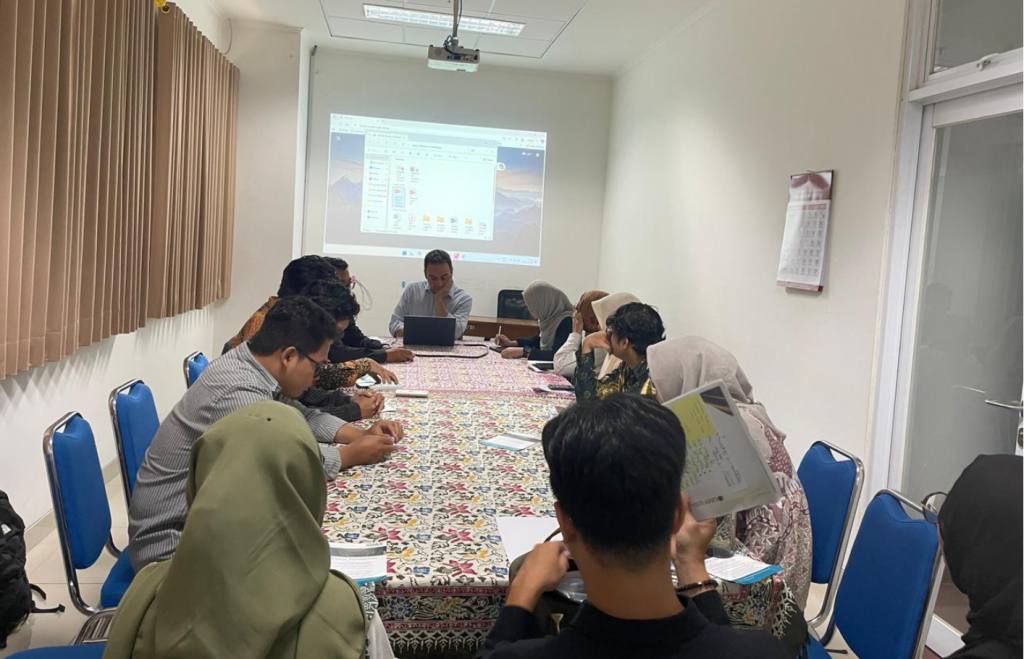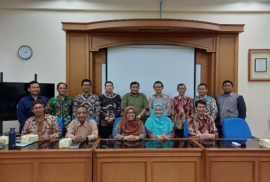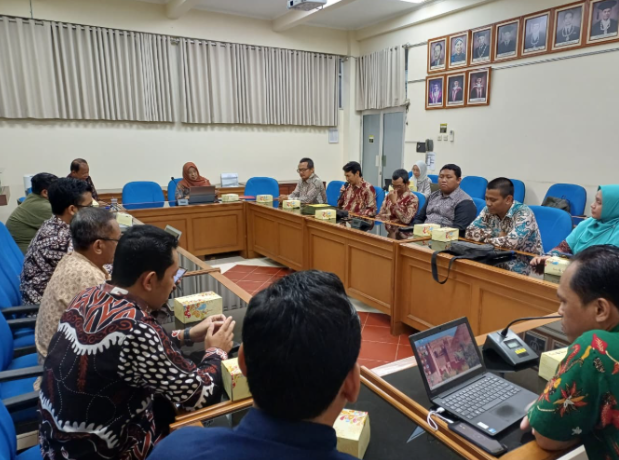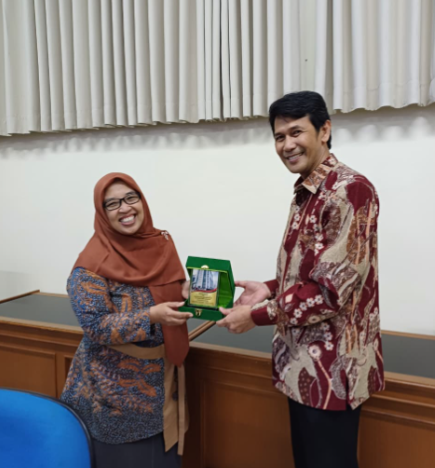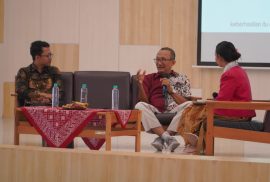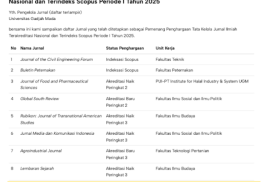Yogyakarta, November 21, 2025 — Indonesia’s Vice Minister of Foreign Affairs, Muhammad Anis Matta, Lc., emphasized that the roadmap for Indonesia’s integration with the Islamic world must be built upon the strength of cultural values that define the nation’s civilization. He delivered this material during a National Lecture titled “Indonesia’s Integration Roadmap with the Islamic World: Exploring Cultural Values in Indonesian Foreign Policy” held at the Poerbatjaraka Auditorium, Faculty of Cultural Sciences (FIB), Universitas Gadjah Mada (UGM). The event was organized through the collaboration of LEM FIB UGM, MADARA UGM, IWDN, and KMIB UGM.
The program opened with a series of remarks highlighting the importance of students and academic spaces in shaping Indonesia’s diplomatic orientation toward the Islamic world. Azky Zidane Qoimul Haq, Chair of LEM FIB UGM, underlined the contributions students can make through intellectual engagement, research, and critical discussion. Meanwhile, Prof. Dr. JM. Muslimin, M.A., advisor to IWDN, expressed his appreciation for the forum and hoped that such cross-cultural dialogues would continue as part of efforts to prepare Indonesia’s future diplomatic direction.
The final remarks were delivered by the Dean of FIB UGM, Prof. Dr. Setiadi, S.Sos., M.Si., who reiterated the faculty’s commitment to fostering strategic academic forums that connect humanities scholarship with global geopolitical dynamics, ensuring that students are not only observers of reality but also active contributors in shaping it.
The main session began with Nafesya Amrina Rosada, S.S., serving as moderator and guiding the discussion effectively and inclusively. In his keynote presentation, Vice Minister Muhammad Anis Matta stressed that Indonesia’s integration with the Islamic world must be grounded in the strength of the nation’s cultural values. He argued that Indonesia’s diplomacy cannot rely solely on political and economic cooperation; it must also draw from the country’s contributions in values, identity, and civilization—elements that form Indonesia’s unique global presence.
Following the presentation, the discussion grew increasingly interactive and substantive. The topic of the Israel–Palestine conflict became the central catalyst that intensified the forum’s dynamics. Participants critically examined how Israeli colonialism has transformed over time—from ethnically driven settlement colonization to an ideologically based colonial project anchored in religious legitimacy, security narratives, and nationalism. Systematic acts of genocide and human rights violations have, they argued, pushed Israel into deeper isolation in the eyes of the international community while gradually eroding what was once strong Western support.
The Vice Minister reaffirmed that Indonesia’s stance on Palestine remains firmly rooted in the principle of a two-state solution, with the moral imperative of protecting human life as the top priority before discussing any political options. He also noted that Indonesia’s support has expanded beyond humanitarian diplomacy and now includes readiness for defense-related support if necessary, while still maintaining Indonesia’s independence from global ideological blocs and geopolitical polarization.
The discussion then shifted to the planned development of an Indonesian “Hajj Village” in Makkah. The forum explored how the rising number of Indonesian pilgrims—exceeding two hundred thousand people each year—necessitates integrated facilities capable of providing structured accommodation and community activity centers. The proposed area is designed not only for convenience but also to strengthen the presence and networks of Indonesian communities in the Holy Land. Danantara is projected to serve as the developer and manager to ensure that the area is operated professionally, modernly, and sustainably.
The session grew even richer as the forum turned to cultural diplomacy as a pillar of foreign policy. The Vice Minister underscored that Indonesia possesses a distinctive civilizational identity—one that harmoniously synthesizes religion, democracy, and culture. This identity, he argued, represents a strategic asset with significant potential to contribute to the Islamic world. However, he also highlighted an internal challenge: Indonesians are often not accustomed to promoting their nation’s strengths on the global stage. Thus, there is a pressing need to translate Indonesia’s religious, social, and national concepts into Arabic to communicate them more effectively to Middle Eastern audiences. By doing so, intellectual diplomacy and cultural diplomacy can operate in harmony with political diplomacy.
A warm and appreciative atmosphere concluded the National Lecture, which broadened perspectives on Indonesia’s diplomatic dynamics within the Islamic world while reaffirming the academic community’s role in advancing global development agendas. By emphasizing cultural diplomacy, reinforcing Indonesia’s commitment to Palestinian peace, and connecting Indonesia’s religious and national ideas to the international sphere, the event aligns closely with several SDGs—particularly SDG 4 (Quality Education), SDG 16 (Peace, Justice, and Strong Institutions), and SDG 17 (Partnerships for the Goals).
Author: Achmad Chozinatul Assror
Editor: Candra Solihin






